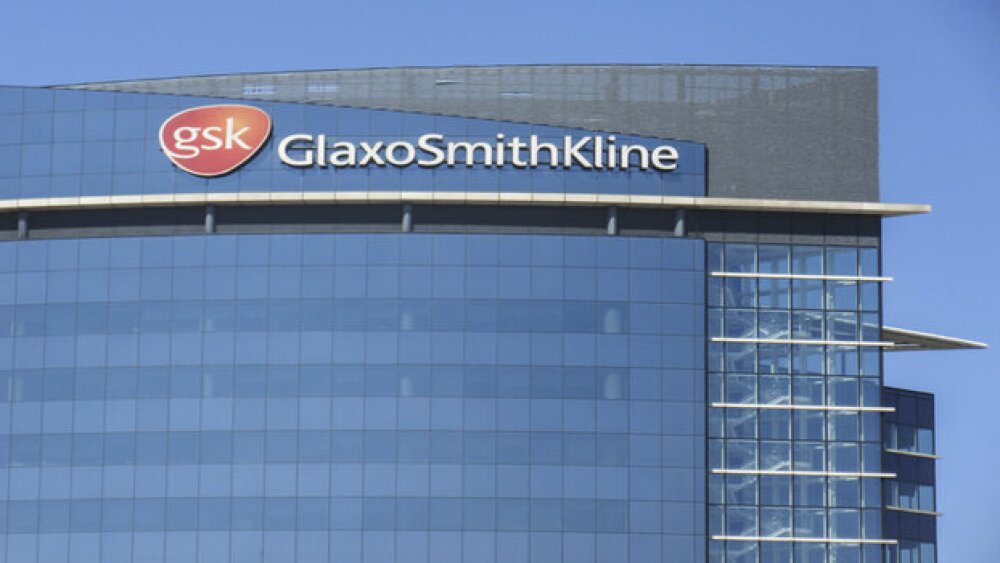A European Medicine Agency panel on Friday reaffirmed its decision not to renew the conditional marketing authorization for GSK’s multiple myeloma drug Blenrep.
Pictured: GSK sign at its headquarters in London/iStock, William Barton
GSK’s multiple myeloma drug Blenrep (belantamab mafodotin) should not have its conditional marketing authorization in Europe renewed after a reexamination of data did not confirm its effectiveness, a European Medicines Agency committee announced on Friday.
EMA’s Committee for Medicinal Products for Human Use (CHMP) noted that Blenrep’s benefits were considered to “no longer outweigh its risks.” CHMP re-examined Blenrep’s data from the Phase III DREAMM-3 trial for Blenrep in combination with pomalidomide and a low dose of dexamethasone.
The EMA panel said the study did not find patients taking GSK’s drug had lived longer than those taking pomalidomide and dexamethasone alone. The drug was authorized in the EU in 2020. In September 2023, CHMP recommended that the marketing authorization not be renewed, a decision that was reaffirmed on Friday.
“GSK respects the Committee’s recommendation against conditional marketing authorization annual renewal for Blenrep in the EU. The European Medicines Agency is expected to adopt this decision on or before 20 February 2024,” a GSK spokesperson said in an emailed statement to BioSpace. “Pending adoption of the CHMP opinion by the European Commission, GSK will work with the EU member states to initiate withdrawal of Blenrep from markets within the EU.”
While the drug will no longer be available in the EU, GSK may still supply Blenrep through compassionate use or named-patient programs to those already taking it.
“As part of our efforts to ensure physicians and patients are supported during this important time, and in line with local regulations and applicable laws, [healthcare providers] with patients already prescribed Blenrep may have the option to enroll patients in an Expanded Access Program or Named Patient Program to continue having access to this treatment,” the GSK spokesperson said.
In November 2022, the DREAMM-3 study’s results were released, showing the median rate for progression-free survival was 11.2 months versus seven months for the other combination. The overall response rate was 41% for the drug compared to 36% for other combinations.
At the time, Reshma Ramachandran, assistant professor of medicine at the Yale School of Medicine, told BioSpace that based on the data the FDA should consider the withdrawal of the drug from the market as it had not met the main requirement of accelerated approval.
GSK began the withdrawal process for Blenrep in the U.S. in November 2022, at the behest of the FDA after the DREAMM-3 trial did not meet the accelerated approval regulations.
During the EMA’s reexamination, a scientific advisory group believed that the DREAMM-3 study did not confirm effectiveness. Still, it did note that the drug could help treat some patients when other treatments may not be suitable.
GSK has been plotting a possible comeback for Blenrep in relapsed/refractory multiple myeloma. In November 2023, the drug—in combination with bortezomib and dexamethasone—met its primary endpoint of progression-free survival in the Phase III DREAMM-7 trial. The study showed the combo reached a p-value of 0.0005 in overall survival. GSK is discussing the drug with regulators.
“We look forward to presenting full data from DREAMM-7 at an upcoming scientific congress, as well as sharing updates from our DREAMM-8 phase IV trial in 2024,” the GSK spokesperson said.
Tyler Patchen is a staff writer at BioSpace. You can reach him at tyler.patchen@biospace.com. Follow him on LinkedIn.






